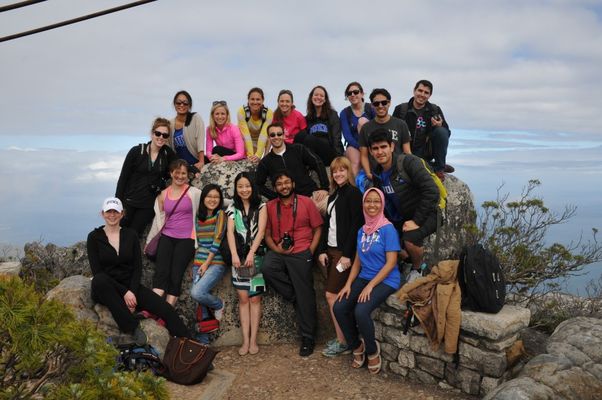Experiential learning is a critical part of our work here at Duke's Fuqua School of Business. Students have the opportunity to delve into the world of social entrepreneurship through projects in the Fuqua Client Consulting Practicum (FCCP) and the CASE i3 Consulting Practicum (i3CP). Since 2008 over 600 students have worked on consulting projects for a wide variety of social ventures in fields including healthcare, education, finance, and technology.
This year 67 students will be working with 11 social ventures both in the US and internationally. Projects range from creating a scaling strategy for increasing impact in rural communities to building a sustainable franchise model. These projects will allow students to build and expand the skills critical to succeed in today’s business environment by providing them real world experience in market research and analysis, strategy implementation, environmental impact measurement, project management, and more.
This year’s companies for the consulting practicums include the following organizations. If your organization would like to be involved in FCCP or CASE i3CP next year, you can learn more at the following links:
The 2016-2017 Consulting Practicum Organizations:
Asha Trust: Based in Johannesburg, ASHA Trust offer early childhood development skills programs to women running and working in home-based creches (pre-schools) in Gauteng and Mpumalanga communities. ASHA’s programs provide the skills for practitioners to create stimulating learning environments, to help meet registration compliance requirements, and to run centers as sustainable small businesses in their communities.
Bain Capital: Bain Capital is one of the world’s leading private multi-asset investment firms with more than $75 billion in assets under management. Founded in 1984, Bain Capital works with private equity, credit, public equity, and venture capital to create lasting impact for their investors, teams, businesses, and the communities they work with.
Calvert Foundation: Calvert Foundation was founded in 1995 to enable people to invest for social good. Since 1995, more than 15,000 Calvert Foundation investors have invested more than $1 billion in their portfolio partners. Calvert Foundation is also a Community Development Financial Institution (CDFI), a type of financial institution providing community development financing and services to underserved communities in the US.
Fidelity Charitable: Founded in 1991, Fidelity Charitable operates The Giving Account, a tax-deductible donation that also gives donors the ability to advise Fidelity on how to grant the money in the donor-advised fund. To date Fidelity Charitable has granted $24.4 billion to public charities with $3.1 billion being granted in 2015 alone.
Forus Health: Of the 40 million blind people in the world, 15 million live in India and only 15% of those have access to high quality eye care. Forus seeks to reach the remaining 85% through a healthcare deployment system that enhances access and affordability, through ophthalmic devices as well as through telemedicine. Forus Health is also a part of the Innovations in Healthcare network & the Social Entrepreneurship Accelerator at Duke (SEAD) program.
HQ Raleigh: HQ leads co-working communities in Raleigh, Greensboro, and Charlotte by providing members with dynamic office spaces, resource, and relationships needed to reach their impact potential. In the next 3-5 years, HQ aims to be the largest entrepreneurial co-working community in the southeast.
KIPP *Eastern North Carolina (ENC): KIPP*ENC’s mission is to empower students with the knowledge, skills, and character necessary to succeed in college, strengthen their communities, and fight for social justice. Since 2001, the organization has grown from one middle school in Gaston, NC to 5 schools in Northampton, Halifax, and Durham counties. Since 2009, 100% of KIPP*ENC’s high school graduates have earned acceptance into a 4-year college or university.
MicroClinic Technologies: MicroClinic Technologies helps underserved patients access safe, affordable care using technology: ZiDi™ is an enterprise solution for clinics to manage and document patient flow. i-SikCure™ is a new mobile phone solution to connect users to medical care, pharmacies, lab, and other wellness resources in a real-time, patient-centered approach. MicroClinic Technologies is also a part of the Innovations in Healthcare network and the Social Entrepreneurship Accelerator at Duke (SEAD) program.
Miracle Feet: 1 in 750 babies worldwide are born with clubfoot. Untreated clubfoot is one of the major causes of physical disability in the world – and yet it is fully and easily treatable at a cost of $250 per case through the non-surgical Ponseti Method. Miraclefeet’s vision is to eradicate untreated clubfoot as a source of disability and poverty on a global scale.
Triangle Community Foundation: For 32 years, Triangle Community Foundation (TCF) has enhanced the lives of all of Triangle residents by connecting donors with causes they care about, investing in nonprofits and serving as a resource for local issues in the Triangle. Each year the Foundation grants more than $18 million back into the community, partnering with donors and nonprofits to make a difference, now and for the future.

